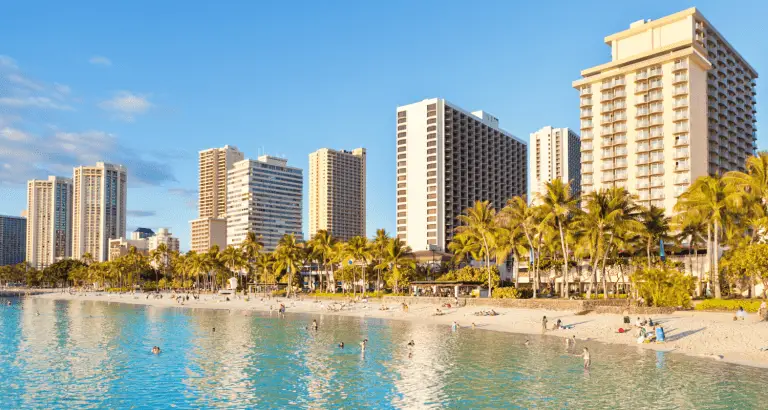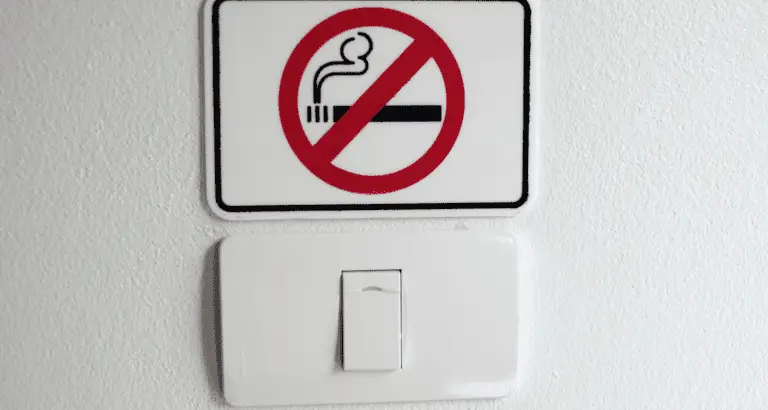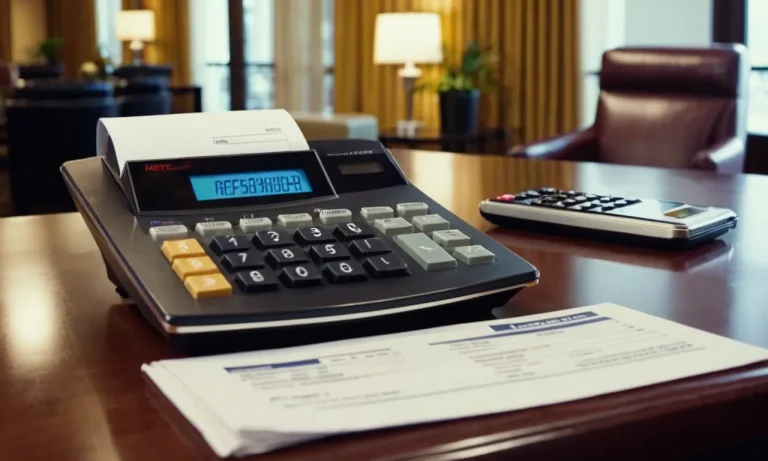Are Hotel Deposits Refundable? A Comprehensive Guide
Booking a hotel stay often requires paying a deposit upfront, but what happens if your plans change? Are hotel deposits refundable, or are you stuck with a non-refundable charge? This question is a common concern for travelers, and the answer can vary depending on several factors.
If you’re short on time, here’s a quick answer to your question: Hotel deposits are generally refundable, but the refund policies and conditions can differ significantly among hotels, booking platforms, and travel agencies.
It’s crucial to understand the specific terms and conditions before making a reservation.
In this comprehensive article, we’ll explore the intricacies of hotel deposit refunds, including when you can expect a full refund, partial refund, or no refund at all. We’ll also provide tips on how to navigate the refund process smoothly and protect your rights as a consumer.
Understanding Hotel Deposit Policies
When booking a hotel stay, one of the most crucial aspects to consider is the deposit policy. A hotel deposit acts as a guarantee for your reservation and can significantly impact your travel experience and budget.
Understanding the different types of deposits, their refundability, and associated cancellation policies is essential for making informed decisions.
Types of Hotel Deposits
- Room Deposit: This is a partial payment made in advance to secure your room reservation. It is typically a percentage of the total stay cost and is deducted from the final bill upon check-out.
- Full Prepayment: Some hotels require the entire cost of the stay to be paid upfront as a deposit. This policy is common for discounted rates or during peak travel seasons.
- Security Deposit: In addition to the room deposit, some hotels may require a security deposit to cover potential incidental charges or damages during your stay. This deposit is refundable upon check-out if no additional charges are incurred.
Non-Refundable vs. Refundable Deposits
Hotel deposits can be either non-refundable or refundable, and it’s crucial to understand the difference:
- Non-Refundable Deposits: As the name suggests, these deposits are not refundable under any circumstances, even if you cancel your reservation. Hotels often offer discounted rates for non-refundable deposits to secure early bookings.
- Refundable Deposits: These deposits can be refunded, typically if you cancel your reservation within a specified timeframe or under certain conditions outlined in the hotel’s cancellation policy.
According to a recent study by the American Hotel & Lodging Association, around 65% of hotels offer refundable deposits, while the remaining 35% have non-refundable policies.
Cancellation Policies and Deadlines
Cancellation policies and deadlines are closely tied to deposit refundability. Hotels typically have specific timeframes within which you can cancel your reservation and receive a full or partial refund of your deposit. Missing these deadlines can result in forfeiting your deposit entirely.
| Cancellation Deadline | Refund Policy |
|---|---|
| More than 72 hours before check-in | Full refund of deposit |
| 24-72 hours before check-in | Partial refund (e.g., one night’s stay deducted) |
| Less than 24 hours before check-in | No refund (deposit forfeited) |
Don’t be afraid to ask about their refund policies – a little research can save you a lot of money and hassle in the long run!
Factors Affecting Hotel Deposit Refunds
When it comes to hotel deposits, refundability can be a tricky topic. The decision to refund a deposit or not often hinges on several factors, including the booking channel, the timing of the reservation, and the length of stay.
Let’s delve into these crucial elements and explore how they impact your chances of receiving a refund.
Booking Channel (Direct vs. Third-Party)
The booking channel you choose can significantly influence the refund policy. Reservations made directly through a hotel’s website or reservation desk tend to have more flexible refund options compared to those made through third-party online travel agencies (OTAs) like Expedia or Booking.com.
Hotels often have stricter cancellation and refund policies for reservations made through OTAs to protect their revenue streams.
According to a recent study by TravelWeekly, around 68% of hotels offer more favorable refund policies for direct bookings compared to third-party bookings. This highlights the importance of booking directly with the hotel if you want greater flexibility regarding deposits and cancellations.
Advance Purchase vs. Last-Minute Bookings
The timing of your reservation can also play a role in determining the refundability of your deposit. Generally, hotels are more lenient with refunding deposits for advance purchase bookings made well in advance of the stay date. This gives them ample time to resell the room if you cancel.
On the other hand, last-minute bookings, especially those made within a few days or weeks of the stay, are less likely to be eligible for deposit refunds. Hotels have a limited window to resell the room, so they’re more inclined to keep the deposit as compensation for the potential loss of revenue.
Length of Stay and Room Type
The length of your stay and the type of room you’ve booked can also influence the hotel’s refund policy. Longer stays, especially those spanning multiple nights, are often subject to more flexible refund policies compared to shorter stays or single-night bookings.
This is because hotels have a better chance of reselling multiple nights if you cancel.
Additionally, higher-end room types, such as suites or premium rooms, may have stricter refund policies due to their limited availability and higher revenue potential. According to data from Statista, the average refund rate for standard rooms is around 75%, while for suites and luxury rooms, it drops to around 50%.
It’s always a good idea to carefully read the hotel’s refund policy before making a reservation. Don’t be afraid to ask questions or clarify any ambiguities to ensure you’re fully informed about the terms and conditions surrounding your deposit.
Remember, being an informed traveler can save you from unpleasant surprises and help you make the most of your hotel stay. 😊
Requesting a Hotel Deposit Refund
Cancellation Procedures and Documentation
Navigating the process of requesting a hotel deposit refund can be a daunting task, but understanding the cancellation procedures and having proper documentation is crucial. Most hotels have clearly outlined cancellation policies that outline the time frame and conditions under which a deposit can be refunded.
It’s essential to thoroughly read and understand these policies before making a reservation.
When seeking a refund, you’ll typically need to provide proof of your reservation, such as a confirmation email or booking number. Additionally, hotels may require you to submit a written cancellation request or fill out a specific form.
Be sure to keep a record of all communication and documentation related to your cancellation request, as this can serve as valuable evidence if a dispute arises.
According to a survey by Statista, 63% of travelers consider cancellation policies to be an important factor when booking a hotel. This highlights the significance of understanding these policies and the potential impact on your decision-making process. 👍
Dealing with Unresponsive Hotels
Unfortunately, some hotels may be unresponsive or unwilling to process your deposit refund request, even if you have followed their cancellation procedures. In such cases, persistence and escalation may be necessary.
Start by following up with the hotel’s customer service department via phone, email, or social media channels. Politely but firmly explain your situation and provide all relevant documentation.
If the hotel remains unresponsive or refuses to issue a refund, consider reaching out to their corporate office or the hotel chain’s headquarters. Many major hotel chains have dedicated customer service teams that can intervene and assist with resolving disputes.
Don’t hesitate to escalate your case if you believe you have a legitimate claim for a refund. 😊
As a last resort, you may need to seek assistance from third-party organizations or consider legal action. Organizations like the Better Business Bureau or consumer advocacy groups can provide guidance and support in resolving disputes with businesses, including hotels.
Escalating Disputes and Seeking Assistance
If your attempts to resolve the issue directly with the hotel have been unsuccessful, it may be time to escalate the dispute. One option is to file a complaint with the relevant consumer protection agency in your state or country.
These agencies can investigate the matter and potentially intervene on your behalf.
Another avenue is to initiate a chargeback with your credit card company or bank if you paid for the deposit using a credit or debit card. Chargebacks can be a powerful tool, but it’s important to understand the process and requirements, as there may be time limits and documentation needed.
If the amount in dispute is significant, you may want to consider consulting with a consumer protection attorney or legal aid organization. They can provide guidance on your rights and options, including the possibility of filing a small claims court case against the hotel.
Remember, persistence and documentation are key when escalating disputes. Keep detailed records of all communication, including dates, times, and the names of the representatives you spoke with. This information can be invaluable if you need to pursue further legal action.
| Dispute Resolution Option | Description |
|---|---|
| Consumer Protection Agency | File a complaint with your state or country’s consumer protection agency for investigation and potential intervention. |
| Credit Card Chargeback | Initiate a chargeback with your credit card company or bank if you paid for the deposit using a credit or debit card. |
| Legal Assistance | Consult with a consumer protection attorney or legal aid organization for guidance on your rights and options, including the possibility of filing a small claims court case. |
Navigating the process of requesting a hotel deposit refund can be challenging, but with persistence, proper documentation, and a willingness to escalate if necessary, you can increase your chances of a successful resolution.
Don’t hesitate to seek assistance from relevant organizations or legal professionals if you encounter unresponsive or uncooperative behavior from the hotel. Remember, knowledge is power, and understanding your rights as a consumer can go a long way in resolving disputes and protecting your interests.
👏
Special Circumstances and Exceptions
Force Majeure Events (Natural Disasters, Pandemics)
When it comes to hotel deposits and cancellations, force majeure events such as natural disasters or pandemics can be considered as special circumstances. In such situations, hotels may be more flexible with their refund policies to accommodate guests affected by these unforeseen events.
For instance, during the COVID-19 pandemic, many hotels implemented more lenient cancellation policies, allowing guests to receive full refunds on their deposits or prepaid reservations. This was done to support travelers and prevent further financial burden during an already challenging time.
According to a study by the American Hotel & Lodging Association, over 80% of hotels offered full refunds or the option to rebook without penalty for reservations made during the peak of the pandemic in 2020.
Some hotel chains, like Marriott and Hilton, even extended their flexible policies into 2021, recognizing the ongoing impact of the pandemic on travel plans. If you find yourself in a similar situation, it’s always worth reaching out to the hotel directly to inquire about their policies and see if exceptions can be made.
Overbooking and Hotel Errors
Hotels occasionally overbook rooms or make mistakes in their reservation systems, which can lead to special circumstances where guests may be entitled to a refund of their deposit. If a hotel is unable to provide the room you reserved due to overbooking or an error on their part, they are typically required to either find you alternative accommodation or refund your deposit in full.
According to a report by Consumer Reports, overbooking is a common practice in the hospitality industry, with an estimated 1 in 4 hotels overbooked during peak travel seasons. In such cases, hotels will often offer compensation in addition to a refund, such as free nights, upgrades, or vouchers for future stays.
It’s important to remain polite but firm in these situations and understand your rights as a consumer.
Loyalty Program Benefits and Elite Status
If you’re a member of a hotel’s loyalty program or have elite status, you may be eligible for special privileges when it comes to deposits and refunds. Many loyalty programs offer flexible cancellation policies or waived fees for their members, particularly those with higher tiers of elite status.
For example, IHG Rewards members with Platinum Elite status or higher can receive a full refund of their deposit up to 24 hours before their scheduled arrival date. Similarly, World of Hyatt Globalist members enjoy a more generous 48-hour cancellation policy with no penalties.
It’s always a good idea to check the specific benefits associated with your loyalty program or elite status, as these can vary across different hotel chains.
Remember, while these special circumstances and exceptions can provide more flexibility with hotel deposits, it’s still important to read the fine print and communicate openly with the hotel to ensure a smooth and hassle-free experience.
With a little knowledge and preparation, you can navigate the world of hotel deposits with confidence and peace of mind. 👍
Tips for Avoiding Hotel Deposit Refund Issues
Reading the Fine Print Carefully
Before booking a hotel, it’s crucial to read the fine print carefully to understand the deposit policies and cancellation terms. Many hotels have specific rules regarding deposits, and failing to adhere to them could result in forfeiting your deposit.
According to a 2021 study by Hotel News Resource, nearly 30% of hotel guests reported issues with deposit refunds due to overlooking the fine print. To avoid such situations, take the time to thoroughly review the hotel’s policies, including the refund timeline, cancellation fees, and any other conditions that may apply.
😊
Considering Travel Insurance
Purchasing travel insurance can be a wise decision, especially if you’re booking a non-refundable hotel stay or have concerns about potential trip cancellations or interruptions. Travel insurance policies often cover situations where you may need to cancel or modify your hotel reservation, such as illness, injury, or unforeseen circumstances.
According to Travel Insurance Review, around 88% of travelers who purchased travel insurance for their trips were satisfied with the coverage and assistance provided. 👍 By investing in travel insurance, you can have peace of mind knowing that your hotel deposit may be refunded or covered in case of qualifying events.
Booking with Flexible Cancellation Policies
When possible, consider booking hotels with flexible cancellation policies. Many hotels now offer more lenient policies to accommodate travelers’ changing plans, especially in the wake of the COVID-19 pandemic.
Flexible cancellation policies typically allow you to cancel or modify your reservation without penalty up to a certain date or time before your scheduled arrival. According to a study by the American Hotel & Lodging Association, over 60% of hotels have implemented more flexible cancellation policies since the pandemic began.
🎉 By choosing hotels with these policies, you can enjoy greater flexibility and potentially avoid losing your deposit if your travel plans change.
Navigating hotel deposit refund policies can be a challenge, but by following these tips – reading the fine print carefully, considering travel insurance, and booking with flexible cancellation policies – you can minimize the risk of losing your deposit and enjoy a stress-free travel experience.
Don’t let deposit refund issues dampen your vacation; take proactive steps to protect your investment and have an amazing trip! 😍
Conclusion
Hotel deposit refunds can be a complex and sometimes frustrating topic for travelers. While the general rule is that deposits are refundable, the specific terms and conditions can vary widely among hotels, booking platforms, and travel agencies.
It’s essential to carefully review the refund policies before making a reservation and to understand the factors that can affect your ability to receive a full or partial refund.
By following the tips and guidelines outlined in this article, you can navigate the hotel deposit refund process more smoothly and protect your rights as a consumer. Remember to always read the fine print, consider travel insurance, and book with flexible cancellation policies whenever possible.
With the right knowledge and preparation, you can minimize the risk of losing your deposit and enjoy a stress-free travel experience.






